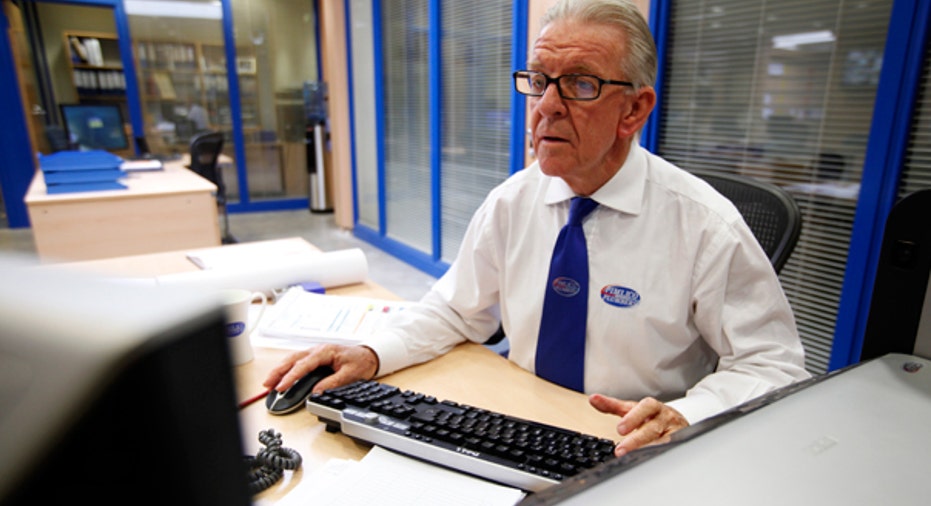Tips for Staying Employed After 50

The weak economy has left millions of Americans without work, and employers remain uneasy about adding to their payrolls, making it difficult for people to find new jobs—particularly older workers.
The Department of Labor reports the unemployment rate for people aged 55 years and older has increased sharply since the beginning of the recession in December 2007. According to the AARP, the unemployment rate for the workforce aged 55 and over dropped to 5.9% in January, down from 6.2% in December.
Greying job seekers face many potential stereotypes in the workforce, which is bad news since many of us boomers plan to stay in the workforce long after the traditional retirement age of 65.
To gain tips for boomers to extend their stay in the workforce, I reached out to Brad Taft, chief career Strategist of Taft Resources Group, an outplacement and career transition consulting firm in Scottsdale, Ariz.
Boomer: What makes older workers a target for layoffs? And what can they do to avoid losing their job?
Taft: Employers reduce staff for many reasons, most of which involve cost, and older workers can become a target because they tend to make more money than their younger counterparts.
To stay off a layoff list, older workers need to show their value. They need to constantly demonstrate their ability to effectively do what is expected of them--and more. There is a lot of pressure on everybody in the work place today to be productive, but if you can show that you are going above and beyond the call of duty, that certainly helps your status when it comes to employers evaluating employees.
Boomer: Why are companies less inclined to hire older workers?
Taft: I have done a lot of research focusing on older workers and their perception in the marketplace. Myths and misconceptions about mature workers and their value to organizations are widely held in the workplace, and these biases form barriers that block the opportunity for talented, mature individuals and companies to form mutually-beneficial relationships.
There are a lot of misconceptions out there including that older workers are more expensive because their compensation expectations are higher than their younger counterparts. But employers need to keep in mind, especially in today’s job market, they should pay for productivity. Companies are moving away from the notion of paying employees more simply because they have been there longer. They are looking at employees’ value in the marketplace, their skills and knowledge and experience when making salary decisions. Paychecks should be determined by what someone does, not how long they’ve been an employee.
Another commonly-held myth, especially among younger workers and hiring authorities, is that older workers can't adapt to new technology. They think there is a technology void, but the fact is, studies show the fastest growing use of the internet is by people 55 years of age and older. Just because boomer workers didn’t necessarily grow up with a computer mouse in their hand, they can still be trained and can definitely take on the technology aspect.
Older workers need to be mindful of these misconceptions when interviewing, and should be ready to combat them and show their competence by talking about and giving examples of how they handled new technology and changes in the workplace.
Boomer: How can baby boomers fight the perception of older workers being less productive?
Taft: There is a myth out there that older workers can't learn and adapt as well as younger workers, just take the saying: "you can't teach an old dog new tricks."
A study by Harvard University a few years ago showed the ability to accumulate knowledge continues to deepen throughout our lifetime—it comes down to taking a different approach to teaching older workers. Older workers also need to fight the idea that they have less energy than younger workers and won’t work as hard. .
There’s also the myth that older people don't work as hard as younger people, maybe they are burned out and can't handle the fast pace environment. But the Department of Labor has done studies that confirms that workers over 50 work harder than their younger counterparts. I think workers over 50 are more motivated to excel simply because they value work. Productivity has to do with handling technology--technology is a major factor in many professions and with older workers, it is all about motivation.
Boomer: Is it discrimination for baby boomers to be branded less productive simply because of their age?
Taft: Any stereotype or bias that is based on perceived traits of a protected class, whether it be race, gender and age is potentially discriminatory. Baby boomers need to anticipate these stereotypes and fight back to break them down.
In interviews, boomer should highlight their career accomplishments with examples of excelling in a fast-pace environment and adapting to change. Boomers need to really communicate their value and their worth to overcome potential discriminations.
Boomer: How can older workers stay positive on the job hunt or in the workplace?
Taft: Boomers needs to find a job they are passionate about that gives them a sense of worth. We all don't have the opportunity to find the "perfect" job, but they need to look for the positives of a potential job.
By taking on the task of improve themselves and increasing productivity, can make boomers feel more accomplished at work. Boomer should always look to improve at the workplace so they are showing their value and gain recognition.



















